Gladioli do not bloom: causes and methods of their elimination
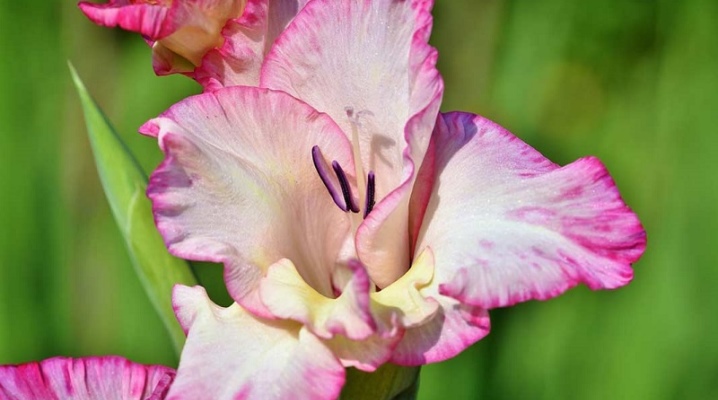
With the arrival of warmth, beautiful gladioli bloom in the garden plots. This culture is considered unpretentious, and therefore it is very popular among summer residents from all over the world. However, there are sometimes problems with these colors. We will try to consider the possible reasons that interfere with the full flowering of gladioli.
When do they bloom?
Gladioli are captivating, stately flowers. They are shrouded in an aura of mystery, and there are many legends around them. Hot Africa is considered the birthplace of this graceful plant. Modern breeders have about 5,000 varieties of gladioli.
This plant grows from a bulb. The flowering period depends on the type of plant. For example, early varieties delight with their amazing buds 60-70 days after planting (this year). As for the middle and late species, they usually begin to bloom after 80-100 days.
Sometimes gladioli (or skewers) refuse to please their owners with beautiful inflorescences or buds are too small and dull. There are many reasons for this. Let's figure it out.
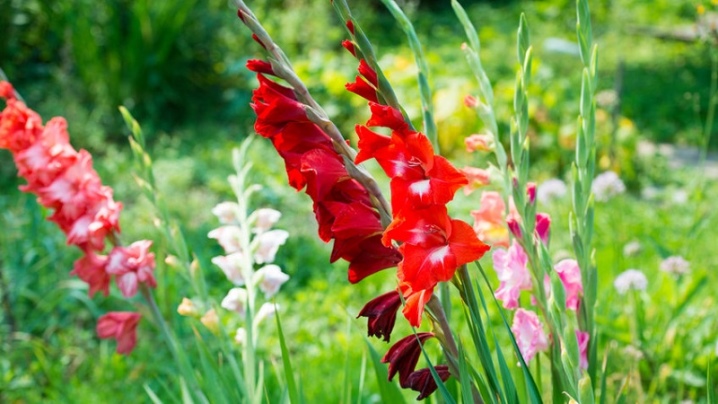
Why are there no peduncles?
Experienced gardeners identify several reasons that "inhibit" the flowering of gladioli.
Bulb quality
By purchasing old and weak planting material, the gardener dooms himself to a sad picture: the flowers did not bloom on time. First of all, it is important to choose varieties and varieties that can adapt to the climatic conditions of your region. It should also be borne in mind that some varieties can rest for several years after the first flowering, accumulating strength. We are talking about Dutch gladioli. Another important point: when collecting the material on his own, the gardener must comply with all the rules for storing the bulbs and not forget about careful selection. Otherwise, you should not wait for the blooming of gladioli.
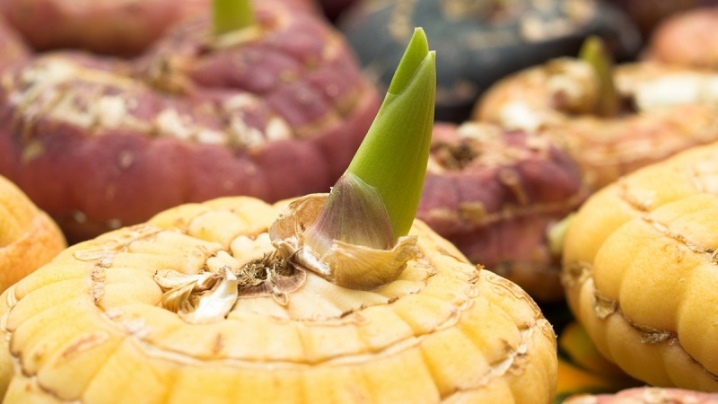
Wrong choice of location
This plant is very fond of sunny color, but it is better to shelter it from the dangerous midday sun. Maximum lighting should be present in the morning and evening hours. In the shade, gladioli are unlikely to please with lush flowering or the buds will be small and lifeless. The middle and late varieties of gladioli are especially in need of light. It is better to choose an open and light site for planting. However, it is still worth protecting a fragile flower from strong gusts of wind.
Another reason the gladiolus does not release its arrow in the first year is the condition of the soil. Soil, which does not allow fresh air to pass through, adversely affects the development of the plant's root system. As a result, the risk of gladiolus infection by fungi or other infections increases. Sometimes the gladiolus does not give the shooter, because he was planted too close to the living quarters. Another important point: gladioli do not grow in one place for more than 2 years.
When replanting this type of ornamental plants, it is necessary to change the composition of the soil. For example, if the flowers were planted in black soil, then sandy loam soil is suitable for the next planting.
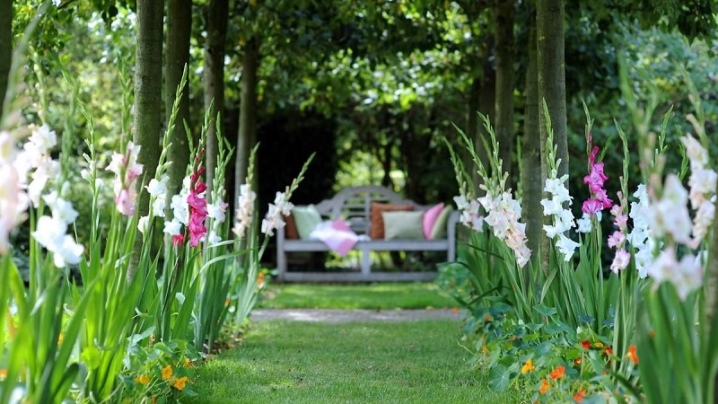
Violation of landing technology
The reason for the absence of peduncles on the plant lies in the wrong planting process. Sometimes gardeners make a number of mistakes.
- In most cases, this is due to the quality of the soil. Skaters prefer breathable, drained soil rich in important trace elements and minerals. Preparation of the soil begins in advance (in the autumn).With the arrival of heat, the soil is loosened again and weeds are removed, as well as the necessary fertilizers are applied. If the soil is not properly prepared, then its scarcity will lead to the absence of peduncles.
- Excessive deepening of the bulbs also affects the flowering process. The neck with the kidney should remain on the surface of the earth. An excessively deep hole delays the development of the plant. In addition, planting young and adult bulbs in the same area is undesirable. The latter will simply crush the young.
- Also, do not plant in gladioli in excessively moist soil (for example, during the rainy season). It is possible that excess moisture will kill the bulbs. It is important for inexperienced gardeners to understand that planting bulbs in cold soil will lead to their death. The soil temperature should not be lower than +10 degrees.
- Close fit is not allowed. The distance between specimens should not be less than 20 cm.
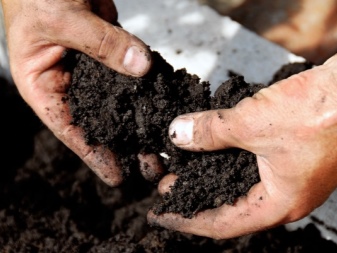
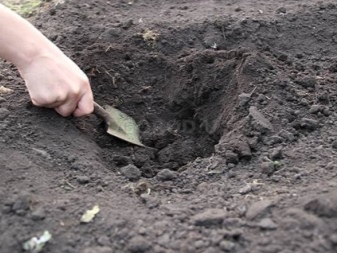
Poor growth conditions
Gladioli are known for their unpretentiousness and do not require careful maintenance. However, beginners often make common mistakes.
- First of all, we are talking about private watering. In the sultry summer, skewers naturally need abundant soil moisture. However, it is highly undesirable to allow stagnant water, as the roots of the bulbs will begin to rot.
- Rare watering is also detrimental to the captivating flower. If the surface of the soil is covered with a crust, then the soil needs to be moistened.
- As for pruning, 3 to 5 leaves should be left on one bush so that the bulbs receive all the necessary substances. Otherwise, the plant will bloom poorly next year.
- Another reason why gladioli do not give an arrow is the lack of feeding. If the gardener did not manage to apply fertilizer immediately after planting the plant, then you should not wait for beautiful flowers on the site.
- In addition, some continue to add nitrogen during flowering. This procedure is prohibited, as the buds can wither without opening.
Do not forget about loosening the soil. Lack of oxygen will lead to the death of the shrub.
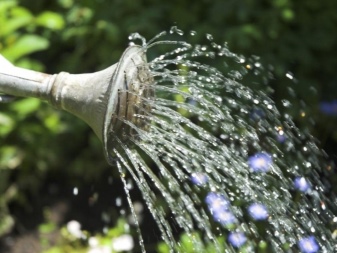
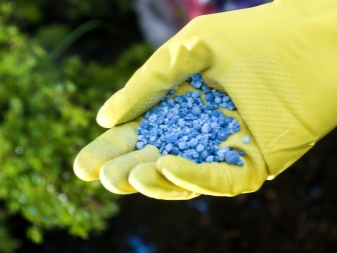
Pests and diseases
No plant is immune to damage from disease or attacks from harmful insects. Gladioli are no exception.
Fusarium
In a shrub affected by this disease, the growth of the root system and leaves slows down. If the disease develops in July-August, then the foliage may not change its shade for a long time, it turns yellow only with the arrival of the autumn cold. Brown spots appear on the affected bulbs. It is advisable to destroy diseased shrubs. The development of such an ailment is facilitated by increased soil moisture or, conversely, drought.
Thrips
Small bugs hide in buds and feed on their juice. The disease manifests itself as follows: the inflorescences change color to a lighter color, then turn yellow and eventually wither. The parasites usually attack the plant at the end of August.
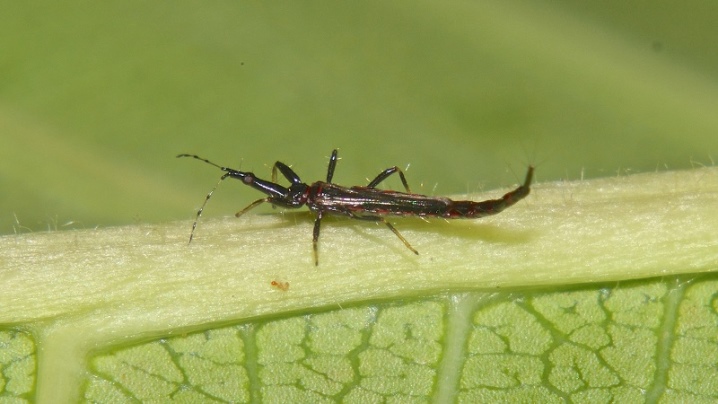
Wireworms
These are worm pests that live underground and infect gladioli bulbs. A diseased shrub has no chance to please the gardener with its flowering.
Expert advice
It is quite possible to protect the plant from the attack of parasites and various diseases. To do this, it is enough to take preventive measures. For example, to protect against fusarium, it is important to follow a number of rules:
- plant flowers in warm soil;
- do not overdo it with watering;
- loosen the ground;
- apply fertilizers on time (nitrogen, phosphorus-potassium).
Note that it is quite difficult to cope with this disease, therefore, before planting, it is advisable to keep the bulbs in a solution of "Fundazole" (0.2%) for 20-30 minutes.
From pests it is enough to process skewers during the growing season with "Aktaroy" or "Aktellikom". The treatment is repeated after 2 weeks. In total, it is enough to carry out 4-5 preventive measures during the season.It is necessary to protect the dug out bulbs in the winter as follows: the cleaned planting material is immersed in a solution of "Karbofos" (3%). Then they are thoroughly washed and dried. From the wireworm it is enough to add the preparation "Protection" (10 ml) into the well.
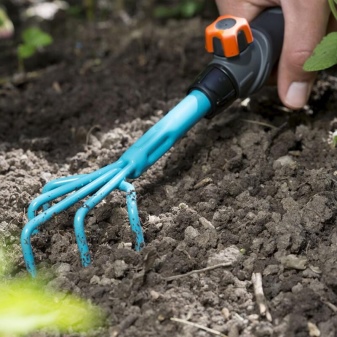
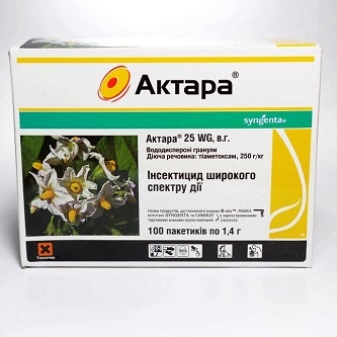
About why gladioli do not bloom and what to do about it, see the next video.





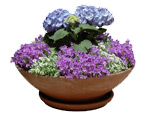
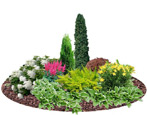
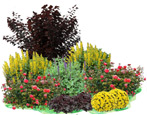


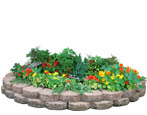


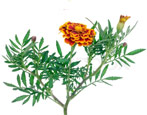
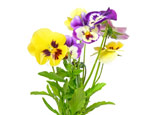

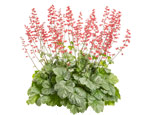

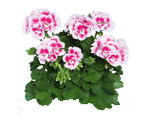




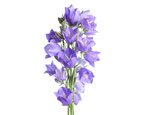
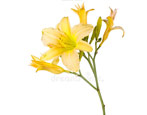

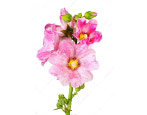


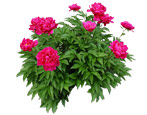
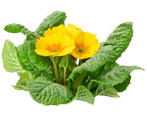
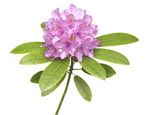



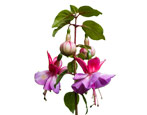

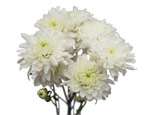

































































The comment was sent successfully.